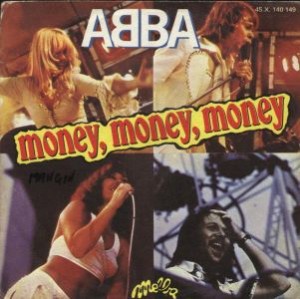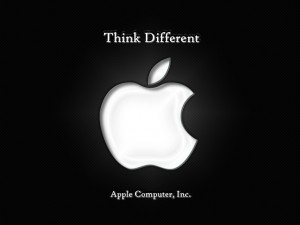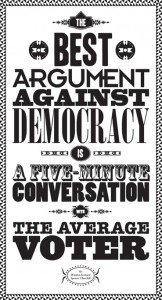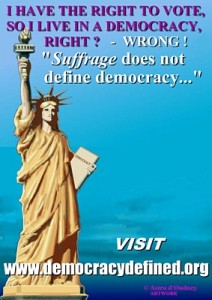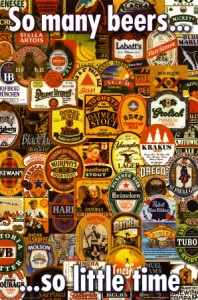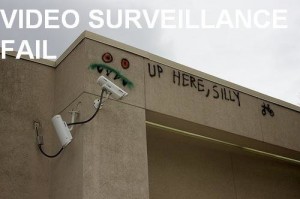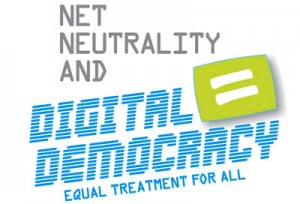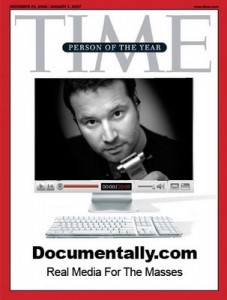Posts from — January 2012
What if money can buy democracy? Oh, wait….it does.
Think you’re rich? Well, can you buy a country? According to the CIA Fact book and Forbes Magazine,
“Bill Gates, America’s richest man with a net worth of $50 billion, has a personal balance sheet larger than the gross domestic product (GDP) of 140 countries, including Costa Rica, El Salvador, Bolivia and Uruguay”.
It is a funny thing, isn’t it? Well recently in the news, it is said that Apple’s cash could bail out Greece for the next two year.
“Apple’s 116 per cent profit growth helped push its total cash to $97.6 billion–enough to cover Greece’s debt payments due in the next two years, according to data compiled by Bloomberg”.
Ultimately, what this is saying is that…money can buy democracies. This may well happen in the very near future. Are they still called democracies if they are operated by a multinational company, with economic interests that may be clearly biased? What do you think?
More articles:
http://www.luxurylaunches.com/celebrities/are_you_rich_enough_to_buy_a_country.php
http://www.montrealgazette.com/technology/Apple+cash+could+bail+Greece/6055193/story.html
January 26, 2012 1 Comment
Democracy, democratic rights, democratization, democratic theory…what do they all mean anyways?
The Greek origins of the word: demos means the common people, and kratos means a rule, a power. However, since we have deviated as a society so much from that governmental structure, what really is Democracy?
There are many definitions of democracy that are in circulation. More importantly, there are many theories about how to derive an accurate Democratic theory. The two main classifications are: minimalist or non-minimalist theory. A minimalist democracy is one that defines very little elements as to what constitutes a democracy. On the other hand, a non-minimalist theory is one that defines more criterion that is necessary for a functional democracy.
In my view, it is necessary for us to adopt a non-minimalist definition of democracy, since the conventions of democracy has evolved to be more complex. For example, the phrase “civil rights and liberties” is inextricably linked to the implementation of democracy. Acknowledging that there are many definitions of democracy out there, I hereby attempt to draw out a relatively broad theory:
Democracy refers to a society that respects civil rights and liberties of its citizens, has universal suffrage, and honors the rule of law.
There are many arguments as thus:
Check out this very poignant article pointing to the core problem of Democracy:
http://generaloverflow.com/is-democracy-doomed-to-bankruptcy
Another argument is that:
When visiting the website, I found a rather radical objection:
“For example, Suffrage does not define nor does it produce democracy, for electoral voting takes place in totalitarian, fascist, communist, and National Socialist (NAZI), i.e., anti-democratic, states. Having been elected, there is nothing to stop government from imposing control of an upper house, reneging on pledges, nor from adopting any tyrannical measures it chooses.”
I’m not so sure that the United States is anti-democratic, and NAZI. However, the point on obsessing over universal suffrage is well taken. If universal suffrage is not conducted in a fair and just manner, with a honour of the rule of law, then it is meaningless. Hence the safeguards against despotism is in fact the honouring of those criterion that I listed in my definition.
I do acknowledge that democracy is a contested concept worldwide. However, these key elements do define the merits and purpose of the system itself.
January 26, 2012 1 Comment
Beer and democracy?
It is always a pleasure after class, especially a stressful exam or test to go enjoy a cold beverage, most of all, beer! When you order beer, do you normally order a glass? Pint? Sleeve? (Well, of course, pitcher would be the best size!) Anyhow, have you ever been confused with the size categorization? I certainly attest that I have. I have definitely got some skimpy pours in smaller glasses before. I’m not alone. Beer lovers are protesting! “The Campaign for Real Ale Vancouver is putting pressure on B.C.’s bars and restaurants to con-fess to the real size of their draft beer servings”. It is said that “[b]y law, a pint in Canada is 20 ounces or 591 mL, but in practice few establishments serve a true pint, he said. So-called pints of beer typically range from 16 to 19.5 ounces, according to The Sun’s research.
All this measurement becomes vital in the discussion of alcohol content in relation to drinking and driving. Many have suggested that beers with higher alcohol content should be served in smaller portions. One respondent to the survey said that standardization is a public safety issue. “With the new tough drinking [and] driving laws you need to know whether you are getting 12 ounces or 20 of a seven-per-cent IPA,” he said.
All this is interesting, but how does it relate to democracy? I hereby pose a question, “Is it the state’s overstepping its authority in trying to control the drinking habits of people, the business tactics of bar owners? Or does it abide to the harm principle suggested by Mill? By the way, the harm principle is defined by Wikipedia, “The harm principle holds that the actions of individuals should only be limited to prevent harm to other individuals”. (Hooray to non-blackouts!) In a liberal democracy where everyone’s individualism is put on a pedestal, and is being honored, is it ok to control or monitor the drinking habits of individuals?
I argue that the government should standardize the measurements so as to ensure that consumers are being given what they paid for. However, I don’t think that a beer with a higher alcoholic content should be served merely in smaller sizes. The amount should be left for the consumers themselves to decide. However, the fact that this concern reached the news demonstrates that the democratic rights of individuals to expression their concern is a sign of a compliance with democratic principles.
January 22, 2012 No Comments
Is “dirty politics” an integral part of Democracy?
I’ve been following the GOP debates loosely, and recently came across this attack on Gingrich. A recent article on Foxnews, (I know, I know, Fox news..), but here’s the title of the article, “Gingrich: Dirty Politics Undermine Democracy”. Here is a link to the article: http://politics.blogs.foxnews.com/2012/01/20/gingrich-dirty-politics-undermine-democracy
Newt Gingrich condemned these “bogus emails” “alleging he asked his ex-wife Marianne for an abortion. During vital times in the campaign as this, it is an obvious danger to the damage to his campaign. Here’s what he had to say to his defense,
“I am sick of the kind of dishonest campaigns that we see when people go out and fake somebody else’s material for the purpose of causing trouble 24 hours before a primary,” he said. “This is not worthy of our children and grandchildren. It’s not worthy of America. It’s not funny. It’s not a game.”
This seemingly trivial manner brings about a question to the fundamental philosophical question, “Do politicians themselves have to be virtuous? Or do we merely care about the outcome during their term?” In a very Greek-philosophy way, we are asking, “Does it matter if a sophist (one that is a clever-speaker but is deceptive) rules, or a philosopher king (a virtuous man)?” Despite the dominating notion of Liberty and freedoms, it seems that society still unconsciously perceive democracies to be driven by virtuous people, with high moral standards, and will promote a positive image of the society. With this implied expectation of politicians, it makes it inevitable that the media will delve into personal lives and perhaps infringe on their privacies.
January 20, 2012 1 Comment
Democratic rights under threat right at our door
Ottawa wants to mandate internet service providers to install more surveillance equipment to monitor their customers online activities. There has been much speculation about the case studies conducted to ensure that the government will generate a strong case for the tighter restrictions on online content.
“Vancouver-based advocacy group OpenMedia.ca published details of an internal Canadian Association of Chiefs of Police (CACP) email message to its members who represent more than 90% of the country’s police community. The message, OpenMedia says, asks CACP members to provide examples, even those with “confidential operational information,” of investigations thwarted by Canada’s privacy legislation”.
The problem with such legislation is that it strips away the rights of the majority, in order to prevent the “minority” from imposing harm on the public. As the Conservative member said, “Rather than making things easier for child pornographers and organized criminals, we call on all Canadians to support these balanced measures,” she said. However, when do we draw the line? When is it intolerable for the government to overstep their authority in ensuring that we are not “harmed”? When is the infringement on our right to expectation of privacy justified and when is it not? It is a slippery slope that can only be prevented through the engagement of the citizens and the awareness.
January 19, 2012 No Comments
Spreading the love
Dear friends in POLI333D,
Here are few things I’d like to share with you, hope you find them interesting:
Robbie Katz:
We both want to go to Law school, here’s some interesting news about them:
http://www.yaledailynews.com/news/2012/jan/19/law-professors-stir-national-debate/
Annie Ju:
Here’s one of my favourite pianist, Maksim Mrvica. So cute, and so good!
https://www.youtube.com/watch?v=PGPkSyEY-YU
Ian Wood:
I am writing the LSAT soon too! It sucks doesn’t it? If you haven’t already, I highly recommend the show: Suits. Check it out, in between logic games and all!
January 19, 2012 1 Comment
Is there such thing as digital democracy?
I was looking through newsfeeds, and the one thing that popped up constantly was the blackout of Wikipedia, #SOPA, #PIPA, and the list goes on. Apart from the complaints by university students that they can’t get on reddit for procrastination’s sake, or they can’t do “research”, what do these protest movements point to? A growing need to define the rights to intellectual property, especially in the realm of cyberspace, hence the new term: digital democracy.
While “radical” measures have been taken up by SOPA and PIPA, another movement, named OPEN, has just commenced, endeavoring to offer a “more moderate” approach to the amendment of the newly introduced piracy act. It is perhaps the less known of all three initiatives.
“The OPEN Act differs in that it would make the International Trade Commission (ITC) the agency responsible for fighting online piracy. The ITC already handles all cases involving foreign imports that are accused of copyright infringement, so it would seem a more natural fit for dealing with foreign websites, according to Issa and Senator Ron Wyden (D-OR), the bill’s other main co-sponsor”. (To read more, click on: http://idealab.talkingpointsmemo.com/2012/01/the-open-act-introduced-can-it-kill-sopa-and-pipa.php)
On the other hand, SOPA and PIPA acts “give the U.S. Attorney General the power to seek court orders to take-down foreign websites when those websites are accused of piracy by copyright holders, like Hollywood and the recording industry”.
More importantly, “the agency could only force U.S. advertisers and payment companies to cut-off business with the foreign website, NOT search engines or Internet Service Providers, as had previously been required by both SOPA and PIPA. The OPEN Act also narrows the definition of what can websites can be targeted, saying that only those foreign sites that have “a limited purpose” aside from piracy or are clear piracy centers can be considered”.
http://whatsnext.blogs.cnn.com/2012/01/18/the-open-act-as-an-experiment-in-digital-democracy/
The major selling point is the niche:
“The full text of the proposed bill is available at an easy-to-use website, KeepTheWebOpen.com. And, most important, people who go to that website can annotate the bill with comments and suggestions for its author, much like they would a Wikipedia document. There’s a field where you can submit your e-mail address to receive updates about changes to the bill and its path through the maze that is our legislative process”.
It is a form of participatory democracy, wherein, the participant can go on the website and give direct comments and suggestions, and annotate the bill. It appropriates the concept put forward by Wikipedia. Out of this frenzy, is the birth of the term Digital Democracy.
This brings me to the discussion on Collier and Levitsky’s article named “Democracy with Adjectives”. They insist on the necessity for subtypes of democracy to assess the causes and consequences of democracy in order to ensure conceptual validity of Democracy. The question I pose is, how does digital democracy score on “The Ladder of Generality”? I argue that we are entrapped in a society where technology, especially the “digitized” world is in fact the platforms for communication between governments, and certainly the electorates and the elected. The merits and quality of communication aside, it is still a forum for generation of ideas and civic participation. In fact, “digital democracy” can fit into almost any kind of democracy. On the scale of generality, it scores high on the ladder for broadness. In fact, one may argue that these subtypes are “more general than the concept of democracy, this approach [might] lead to a loss of conceptual differentiation” (pp.437). Of course, this kind of democracy will be completely different, having no overruling authority, since it transcends boundaries. Initially, there must be an intrinsic value to this kind of democracy in order for it to be able to “self-police” in various nations. There will somewhat be controls by that of either the “US Attorney General” or the bureaucracies in domestic politics, in examples cited above. However, it essentially should be monitored and judged the people engaging in it. Any thoughts on this?
To read more on this article, please visit:
Collier, David, and Steven Levitsky, “Democracy with Adjectives: Conceptual Innovation in Comparative Research,” World Politics 49 (1997): 430-51. http://www.jstor.org.ezproxy.library.ubc.ca/stable/25054009
January 19, 2012 No Comments
Is the interference of “democratic” nations in third world countries a means of assimilation?
When one speaks of Democracy, one automatically connects it to the “rule of the majority”. The often forgotten implication is that the majority’s dominance only has authority with the existence of a minority. Or else, that authority loses it meaning. The problem is that the developed nations are endeavouring to assimilate developing nations in the name of “democracy”. Ironically, the voice of minorities is being muted in the process of promoting Western-centric notion of democracy.
A recent article in The Guardian is entitled, “The UK has a vital diplomatic role to play on the global stage”. One might assume that the interference of democratic nations like the UK is a noble and good initiative. Through this discourse, the political agenda and propaganda of Western nations is euphemized and lost. The article states,
But now the game has changed. It is time to recognise the immense good that western power can play, and often has, in the promotion of decency and tolerance, and to develop strategies to undermine the reactionary forces in other great powers, namely Russia and China. Because it is Russia and China, not the west, that has not only vetoed action against the horrific Burmese regime but supplied it with military and other support. Other beneficiaries of the Russo-Sino diplomatic forcefield include a Syrian dictatorship that is currently massacring those of its citizens seeking a more democratic future. While continuing to bash the west hard and often, it will be increasingly important for an international community of human rights activists to hold the other great powers in check.
To see the full article, please click on the link:
http://www.guardian.co.uk/global-development/poverty-matters/2012/jan/10/uk-vital-diplomatic-role-global-stage
Many scholars have also noted the role of the United Nations, who are the key promoters of democratization. In response to the criticisms and skepticisms of scholars, in response, the United Nations published a document named “An Agenda for Democratization”, where it proclaimed that,
The United Nations is, by design and definition, universal and impartial. While democratization is a new force in world affairs, and while democracy can and should be assimilated by all cultures and traditions, it is not for the United Nations to offer a model of democratization or democracy or to promote democracy in a specific case. Indeed, to do so could be counter-productive to the process of democratization which, in order to take root and to flourish, must derive from the society itself. Each society must be able to choose the form, pace and character of its democratization process. Imposition of foreign models not only contravenes the Charter principle of non-intervention in internal affairs, it may also generate resentment among both the Government and the public, which may in turn feed internal forces inimical to democratization and to the idea of democracy.
(To see the entire document, please click: http://www.un.org/fr/events/democracyday/pdf/An_agenda_for_democratization.pdf)
The “reluctance” of the United Nations to indulge in internal affairs of the governments is an ideal that is far from perfect during implementation. The interference with domestic affairs seems inevitable, especially during reconstruction period of a nation. Moreover, the conditionalities that are attached to that of foreign aid makes it impossible for that to occur.
January 18, 2012 No Comments
Do all your procrastination on Reddit, all your “academic research” on Wikipedia NOW
If you need Wikipedia or Reddit, use it NOW before midnight: These Websites Are Going Dark to Protest SOPA tomorrow (January 18th). You’ve only got a few hours.
List of websites going dark:
http://mashable.com/2012/01/17/sopa-companies-dark-list/?utm_source=TweetMeme&utm_medium=widget&utm_campaign=retweetbutton
How long will the site (Wikipedia) be blacked out?
The blackout starts at 12:00 a.m. eastern time (5:00 a.m. GMT) on Wednesday morning and will last until 12:00 a.m. eastern time on Thursday (also 5:00 a.m. GMT).
For more information regarding the Wikipedia blackout movement, checkout: http://news.nationalpost.com/2012/01/17/why-is-there-going-to-be-a-wikipedia-blackout-and-what-is-sopa/
January 17, 2012 No Comments
Welcome!
Dear readers,
This is a blog that was initially commenced for the use of a class at UBC, POLI333D, on issues on Comparative Politics, with Professor Nyblade. Throughout the course, I will be sharing with you interesting articles and issues on Democracy, and anything interesting for that matter.
To tell you a little about me, I am a fourth year Political Science major, with a minor in Philosophy. I am an aspiring Law Student. To gain experience, I have recently started working as a Legal and Judicial Court Interpreter. Also, I am the founder of the UBC Undergraduate chapter of Phi delta phi International Legal Fraternity. Feel free to ask any questions regarding that.
Fun facts about me: I have a variety interests including basketball, tennis, playing the harp, the piano. Recently, I participated in the Miss Chinese Vancouver pageant 2011, and was crowned first runner up, Miss Photogenic, and Miss Elegant Model.
Thanks for visiting my site, and I hope to see you around!
You can follow me on twitter @vthechan

January 14, 2012 1 Comment
